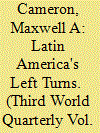| Srl | Item |
| 1 |
ID:
166471


|
|
|
|
|
| Summary/Abstract |
This paper focuses on market design options for operational balancing management in self-dispatch electric power systems. In particular, it investigates the most relevant timing for the balancing gate closure, when competitors' decisions on the setting of controllable assets are neutralized and this responsibility is simultaneously transferred to the system operator. This discussion is central in the development and implementation of the European Electricity Balancing Guideline. Based on a multi-level simulation tool with a realistic modelling of short-term power system operations, this paper proposes the first quantitative assessment of postponing the balancing gate closure time from 1 h to 15 min ahead of the imbalance settlement period. For different environments (energy mix, power plant capabilities, outages, etc), the results highlight that postponing the balancing gate closure time from 1 h to 15 min increases the operational cost of the system. Based on robust and scalable results, we show that this difference is mainly due to a better coordination of the available resources by the central decision maker.
|
|
|
|
|
|
|
|
|
|
|
|
|
|
|
|
| 2 |
ID:
086015


|
|
|
|
|
| Publication |
2009.
|
| Summary/Abstract |
In rapid succession leftwing parties have been elected to government in some of the most important countries in the Latin American region. I challenge the view that there are two distinct variants of the left-one populist, the other social democratic-and argue that variation on the left reflects the diverse conditions under which these forces emerge and evolve. I outline common features shared by the left in Latin America; suggest how the concept of populism and analysis of social movements can help explain this variation; and show how the left's commitment to egalitarianism, balancing markets, and, in some cases, its appeals to the constituent power of the people enabled it to benefit from disillusionment with the results of neoliberalism, the poor performance of democratic governments in Latin America, and the evolving international context.
|
|
|
|
|
|
|
|
|
|
|
|
|
|
|
|